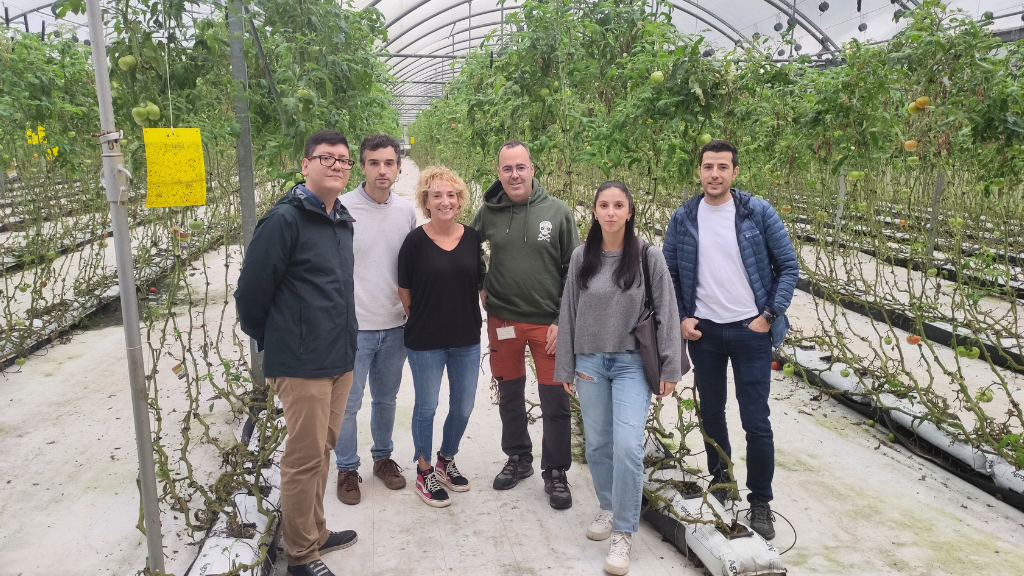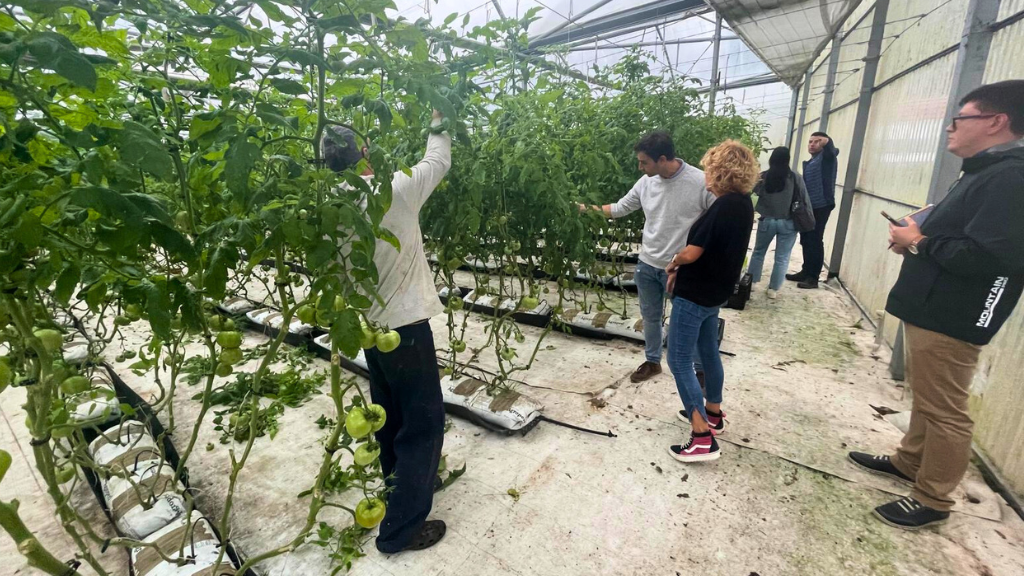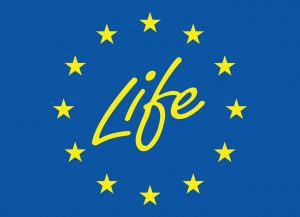Original Source: Web Fundación Centro Tecnológico CTC
Greenhouses are complex environments for autonomous robotic navigation. Both the signal interference generated by the metallic structures and the irregularity of the crops pose a challenge to any system that intends to move inside them independently. Evaluating and identifying the dimensions, layout and characteristics of the environment in which the prototype of the LIFE ACCLIMATE project will work was the main reason for the trip made by the CTC team to the facilities of GARAIA KOOP – an association of agricultural producers from Vizcaya.
Alejandro López, manager of the Navigation and Robotics area of CTC, accompanied by Alejandro Pérez, Víctor Ángel Ardila and Ruth García, were able to identify first-hand the challenges faced by the project to design and develop a robotic solution capable of autonomously collecting data inside the greenhouses. Since the project contemplates using an existing platform, such visits are crucial to define the necessary adaptations for the success of the project.

The robot, equipped with sensors to accurately monitor key information, is intended to navigate autonomously throughout the greenhouse and collect data on the state of the crops, humidity, temperature and other variables.
The solution suggested by LIFE ACCLIMATE is presented as an innovative model of sustainable horticulture and a strategic solution to mitigate the effects of climate change. It aims to increase crop productivity by 25% and reduce the impact of pests and diseases by 25% and 50%, respectively. To achieve this, artificial intelligence techniques and a decision support system will be used.
In addition to CTC and GARAIA KOOP, the visit was attended by representatives of the company ALERION, also a partner in the project, which will work together with CTC in the collection of data by means of aerial robots. This joint activity has allowed the exchange of ideas and the pooling of different points of view to address the challenges of the project, resulting in solutions or approaches that base their success on the combined capabilities of the partners.

LIFE ACCLIMATE will focus its analysis on tomato, bell pepper, lettuce and cucumber crops under light indoor conditions. Precisely for this reason, when the development of the equipment is completed, a validation in real environments will be carried out in order to evaluate and improve the scalability of the proposed solution.
In this sense, and in order to make the adaptation of the technology as rigorous and reliable as possible, tests will be carried out in greenhouses with different environmental conditions and structural characteristics, specifically in Almeria and Vizcaya. Thus, by demonstrating its effectiveness in different conditions, the project seeks to lay a firm foundation that will demonstrate both its adaptability and its lasting impact.
The kick-off meeting was held in mid-September at the facilities of the University of Almeria, leader of the consortium that includes 11 other entities, including CEIGRAM-UPM.
In this project, CEIGRAM-UPM is responsible for developing pest and disease prediction models using AI and robot data to improve adaptability in the face of climate change. This includes the deployment of remote monitoring systems with integrated sensors and cameras capable of analyzing pest and disease data collected by robotic platforms, enabling early detection and intervention strategies. These strategies help reduce the need for widespread pesticide application and minimize chemical use. The main goal is to develop specific pest management strategies based on real-time data, predictive analytics and practical information for farmers. These insights can include optimized climate control strategies, customized crop management recommendations and tailored pest and disease control measures.





